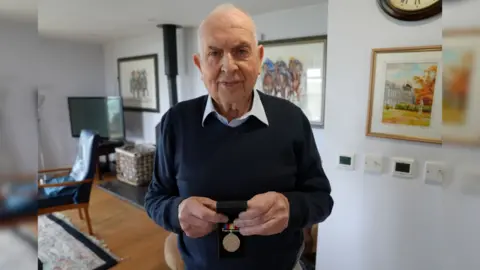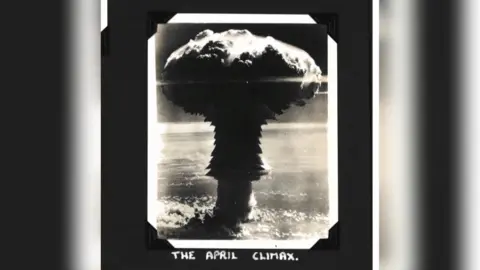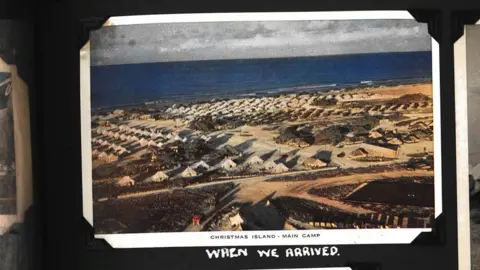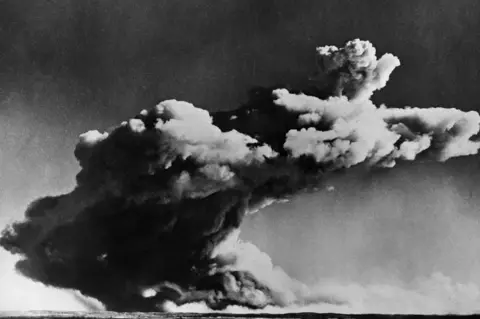'I was a guinea pig during secret Christmas Island nuclear tests'
 Dawid Wojtowicz/BBC
Dawid Wojtowicz/BBCA former Royal Engineer who witnessed several atomic and hydrogen bomb explosions as part of the UK's nuclear tests said he was a "guinea pig".
Brian Cantle, from Bedfordshire, was 21 when he was sent to Christmas Island as part of his national service in 1957.
He and the other soldiers were not told what they were going to do there - due to the covert nature of the programme.
Mr Cantle, now 87, has been awarded a Nuclear Test Medal for his work on the Pacific Ocean island.
The veteran, from Whipsnade, witnessed several atomic and hydrogen bomb explosions during his 12 months on the island.
He was one of 22,000 British servicemen who participated in the British and United States' nuclear tests and clean-ups between 1952 and 1965.
 David Wojtowicz/BBC
David Wojtowicz/BBCMr Cantle said he arrived in the dead of night to be "surrounded by sharks", having sailed from Southampton.
"It was just a very basic island, very flat with reefs all the way round and sharks all the way round," he said.
The job of the Royal Engineers was to build a camp for the British forces, but it became clear something bigger was going on in the background.
"We were told there would be a bomb in, say, two months' time and when they dropped the bomb they had other aircraft there," Mr Cantle explained.
"We were possibly told that an atomic bomb was going to be dropped but we weren't told an awful lot about it at the time."
 Dawid Wojtowicz/BBC
Dawid Wojtowicz/BBCOn the days when bombs were tested, Mr Cantle said troops would have to put on brown overalls and face the other way to the bomb going off.
He added: "It was just a big flash and then we were told we could turn round and see it. It was an enormous explosion."
'We were guinea pigs'
In the decades that have followed the tests, calls have been made for the men who witnessed a nuclear test to receive an apology for the health risks they were exposed to.
"We were guinea pigs, we were just told what to do and did it," Mr Cantle said.
"I don't feel bitter at all though, it was part of life and I'm lucky because I'm healthy."
 Getty Images
Getty ImagesThe Grapple H-bomb nuclear test series was intended to show that the British had the technology to influence the Cold War, following the development of the atomic bomb by U.S. scientist Robert Oppenheimer.
The hydrogen bombs, which were much more powerful than atomic bombs, were detonated every three months.
But Mr Cantle said that business resumed as usual after the explosions. The cooks returned to preparing the next meal and he would return to building houses.
"We didn't really know [what was going on] - we weren't told an awful lot," he said.
"It was probably a good thing we didn't know about it, with hindsight."

Follow East of England news on Facebook, Instagram and X. Got a story? Email [email protected] or WhatsApp 0800 169 1830
